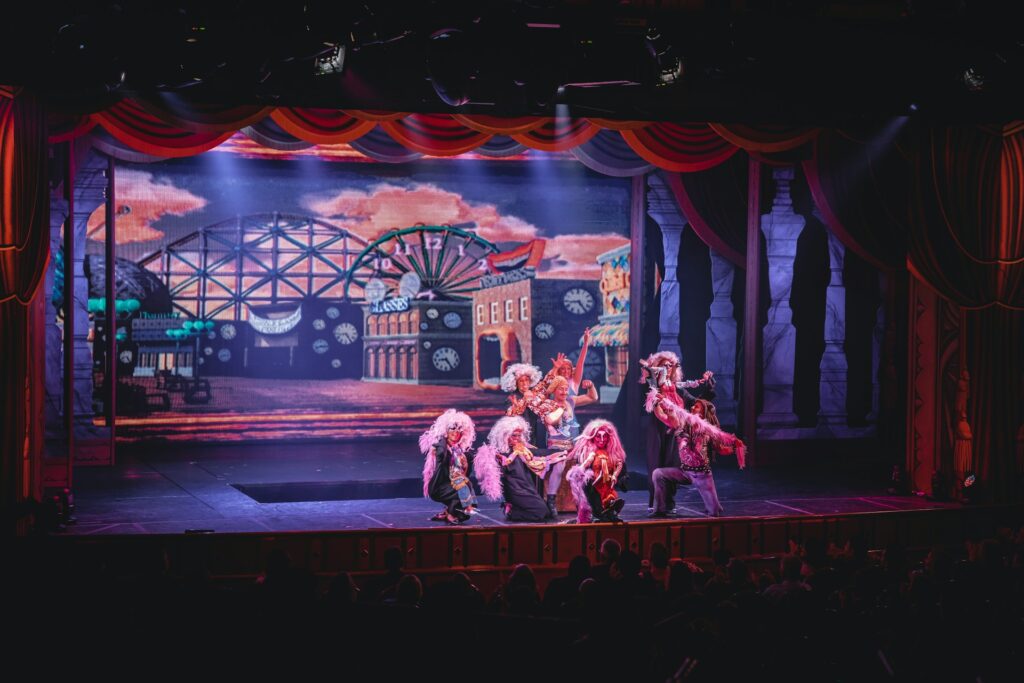Adolescence, known for its tumultuous turmoil, is also a transformative period, one filled with self-discovery, emotional growth, and a whole lot of social development. For most teens, navigating this stage can be challenging, especially in a world with ever-increasing blocks to self-confidence and technology creating roadblocks to effective communication skills. There is a powerful and often overlooked tool teens can engage with to support this growth.
A Creative Outlet for Emotional Growth

Performing arts—whether it’s theater, dance, music, slam poetry or spoken word—offer teens a safe and creative outlet to express themselves. Through characters, choreography, or lyrics, teens have an opportunity to explore weighty emotions and ideas they might typically struggle with articulating in everyday life. The performing arts are also incredible vessels for truly engaging with empathy. This form of expression can help teens to better understand themselves and others, deeply fostering their empathy and emotional intelligence.
Building Confidence Through Challenge and Achievement

Stepping onto a stage, even in a classroom or rehearsal setting, requires courage. Overcoming this “stage fright”, facing an audience (even a small one), teaches teens to manage their nerves and anxiety. If they audition for a role or just attempt something new and out of their comfort zone, they are encouraging boldness and resilience in themselves. Then, when they learn and master a monologue or a dance routine, they build a sense of working toward an accomplishment and being proud of their efforts. This learned self-assurance translates to all other areas of life.
Enhancing Communication and Fostering Belonging

Performing arts are inherently collaborative. Participants must listen, respond, and adapt to others in real time. This nurtures active listening. Studies show that the active listening involved in acting and music improve comprehension, mindfulness, and empathy. In these artforms, there is also immense opportunity for learning how to better communicate; Whether speaking or singing, artists must learn how to articulate, enunciate, and project. And these arts teach the importance of what is communicated through body language and facial expressions.
These skills are invaluable to life. Beyond school presentations, knowing how to present yourself, listen, and speak with confidence are essential in job interviews, job presentations, meetings with others, everyday conversations, and more.
Many artists say that the performing arts saved their lives; Because of that innae collaborative nature, performing arts foster a strong sense of belonging. Teens work closely with peers, forming bonds based on trust, mutual respect, and shared goals. (A refreshing contrast to forming bonds based on who is wearing what, right?) This sense of community can be especially empowering for those who feel isolated or struggle with self-esteem.
To make matters a bit sweeter for parents who might be considering the performing arts as an option for their teen, studies have shown that teens involved in the arts tend to have higher academic achievement, better attendance, and stronger problem-solving skills. More importantly, they often carry the confidence and communication abilities they develop into adulthood, benefiting their careers and personal relationships.
These are more than just extracurricular activities—they are transformative experiences that help teens find their voice, build confidence, and connect with others.


